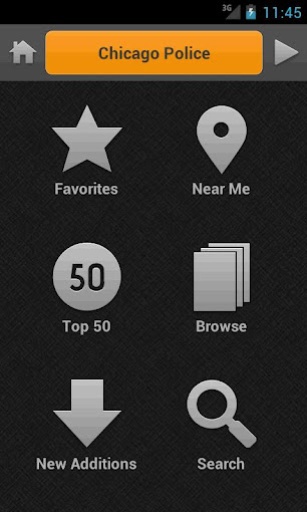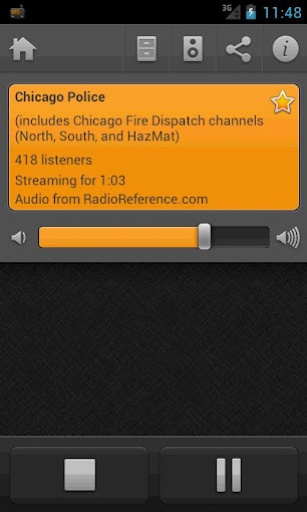Posted by: pkmurphy 12 years, 6 months ago
Recently, I was down in Melbourne for a wedding. Most people coming for the event were locals, but some had come from as far afield as Brisbane. I (obviously) was one; so too was the groom's brother. While drinking some of his generously offered beer, we somehow got onto the topic of what Brisbane's worst suburb was. He brought up Ipswich, only to rubbish the very idea that it was the worst. Many of his friends lived there, after all. Inala was another place with a bad reputation, but my wife likes to shop there, and it has great phở, so cross that out. Kingston? Another place prone to fear mongering, but that's where the groom's brother's from: no difficulty living there at all.
I brought up Deception Bay. Some of my friends and acquaintances had lived there and amassed some horror stories: could that be the worst area in the Brisbane metropolis? How did he respond? He took out his mobile, chose an application, and it started streaming the police radio from that area. We had agreement.
The name of the app was Scanner Radio, the subject of this post. Scanner Radio is a utility that is designed to act like your own police/scanner. You choose a station, you press the "play" button, and you can start listening to the emergency service of your choice. The app is not the same as a real radio scanner; it does not extend the receiving frequencies of your mobile to listen in to transmitters around you. What it does is grab a live feed from Internet audio providers such as RadioReference – "The world's largest radio communication data provider" – and this accesses the signals of actual scanners in the field.
The catch is that you need someone to hook up their scanner to an Internet audio provider first. You have to depend on the kindness of strangers. There are police scans for the Redcliffe and Caboolture area, but you would be out of luck looking for the central Brisbane equivalent: no-one has hooked up their scanner to RadioReference. The upside of Scanner Radio is its flexibility compared to a real scanner: you aren't limited to signals in your own vicinity. For example, I was just listening to the Californian Highway Patrol some minutes ago – live out of San Diego.
Scanner Radio is quite easy to use. Once you start it up, you are shown six icons – each representing a feature of the app. Most of these are to find the services you are interested in receiving, such as "Favourites", "Search", or "Browse".

Scanner Radio – starting up.
The "Search" window (not shown) isn't that well designed. You have to type a search term and choose a minimum distance from your position in miles. It's not either search term or distance to location but both search term and distance, which is confusing, and there is no way to configure the app to use civilized units like kilometres.
The "Browse" feature is better designed. You can search by area or search by "genre" ("Air", "Rail", "Marine", and so on). Choose by area, and you are given a list of countries; choose a country, and you are given a choice of states and/or provinces; choose a state and you are given a list of regions like "Southeast Coast"; and afterward you choose the "station" you want to listen to. That's just four finger presses on your mobile. Listening in is as simple as pressing the play button.

Scanner Radio – Listening to the Radio
Scanner Radio is a mobile app, but it is not a social app. The base application does not support comments from listeners. There exists a Scanner Radio Chat Plug-in, which allows listeners to chat with each other in text. However, when I installed it, I found that few people use this add-on. The "Top 50" chat rooms yielded only two, and one was for an amateur radio network.
How does Scanner Radio measure up against Grudin's eight challenges for developers? I think it acquits itself very well.
- Disparity in work and benefit: The application seems like it would suffer this challenge badly. The workers have to hook their scanner to an audio streamer site like RadioReference, while the benefiters just have to download the app. But there seems to be enough altruistic individuals who will take the trouble to scan and stream. I guess there are existing social networks out there consisting of individuals who get social status from providing their scanners for the benefit of all, and these networks precede Scanner Radio by years, if not decades.
- Critical mass: Scanner Radio has achieved critical mass, because there are enough physical scanners in the field connected to the application, and enough users to use the application. People find it useful as a cure for insomnia, or because they're voyeurs. Or because they've been drinking quite heavily and want to know if the cops are on the way home or not.
- Disruption of social processes: obviously it is not in the police's interest for the public to know where they've set up random breath tests. However, scanners are legal in Australia (and in other countries), so one has not broken the law by downloading the application.
- Unobtrusive accessibility: Scanner Radio is quite an unobtrusive, because it takes only a few pushes on the screen to use it, and it is accessible, because it fits in the hand easier than a real scanner. In practice, one needs to have access to a wireless hotspot to use it, because streaming audio from an external site is bandwidth heavy. However, you don't have to be next to a stationary PC to get the benefit, so users can walk around, talking to friends, possibly with an extra drink or three in their hands.
Scanner Radio is not my sort of product, but it feels suited for what it is: an app that allows casual users to eavesdrop the emergency services in their area. People who are really, really into that sort of thing can go and buy their own scanner. For the rest of us – especially the ones avoiding DUI convictions – Scanner Radio does what it does quite well.
Share on Twitter Share on FacebookRecent Posts
- An email to multilevel marketeers
- The Slide Rule - hand held computation before there were hand held computers
- A not so small Foursquare review
- Stack Overflow – social media brilliance for the working programmer
- Scanner Radio
Archive
2013
- April (1)
2012
2011
2010
Tags
- blog (1)
- United States (2)
- web (1)
- marketing (1)
- Politics (2)
- Scams (1)
- DECO7350 (10)
- Personal (1)
- English (3)
- Kevin Rudd (1)
- Julia Gillard (1)
- ALP (1)
- Australia (1)
- Pollution (1)
- Education (2)
- Việt Nam (2)
- Training (1)
- Foreclosure (1)
- crisis (1)
- housing (1)
- fraud (1)
- Various (1)
- ghostwriting (1)
- scam (1)
- scumminess (1)
Authors
- pkmurphy (16)